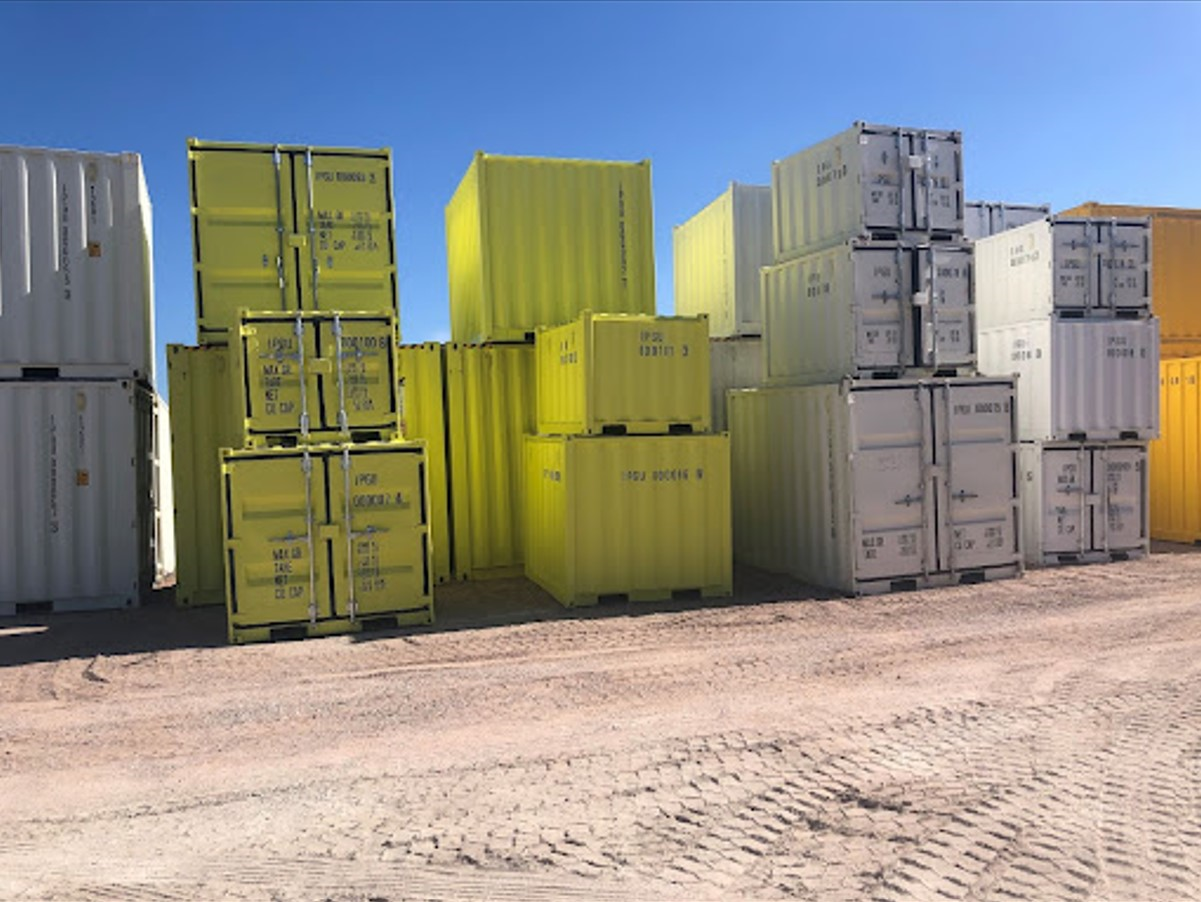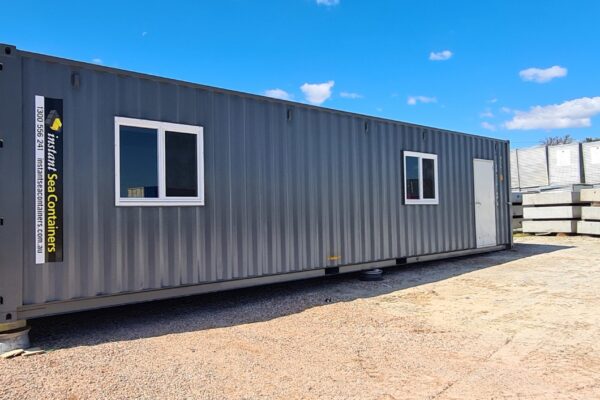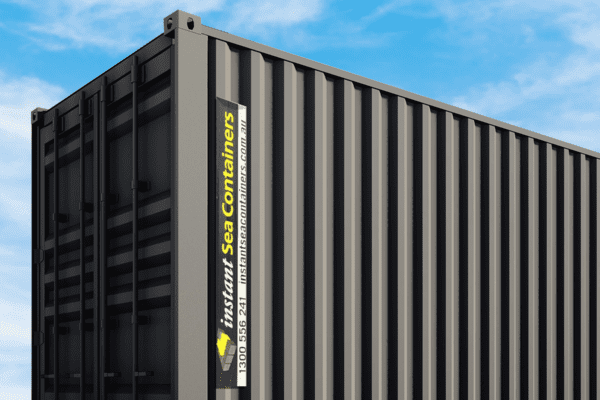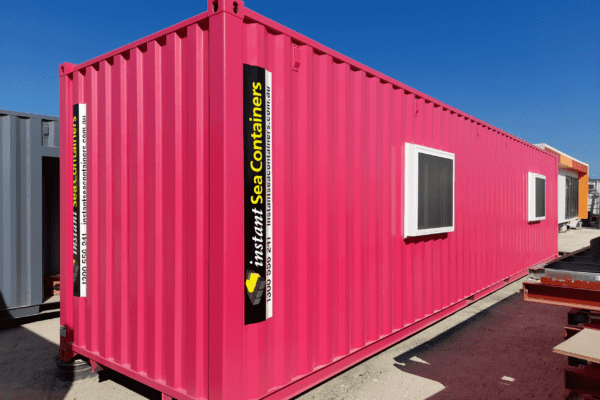Table of Contents
Shipping containers are everywhere, powering global trade by transporting goods across the seas. Their durability and design come from specific materials chosen to endure the challenges of sea travel. Ever wondered what are shipping containers are made of to make them so tough? In this blog, we’ll explore the shipping container material and design choices that make sea containers pivotal in global trade.
Historical Context of Sea Containers
The concept of sea containers has its roots in the early 20th century when industries realised the need for a standardised, efficient method of transporting goods across oceans. Before their existence, people shipped goods in wooden crates, bags, and barrels. This method made loading and unloading labour-intensive and inefficient. Because of these challenges, there was a need for a single, strong container type that could handle long sea journeys. This led to the creation of the modern sea containers we see today.
The Main Material: Corrugated Corten Steel
Understanding what shipping containers are made of begins with Corten steel, commonly known as ‘weathering steel’, the primary material used in making sea containers. This steel has a unique property that enables it to form a protective rust layer when exposed to the atmosphere. This rust acts as a shield, preventing the steel from deteriorating further. This property makes it suitable for challenging sea conditions where moisture and salt can quickly corrode other metals. Its strength and resilience make it a top choice for enduring heavy cargo and the rough handling containers often experience.
The term ‘corrugated’ refers to the wave-like pattern you see on the container’s surface. This isn’t just for looks. By folding the steel into this pattern, it becomes stronger and more rigid. Think of it like the ridges in cardboard; they give it added strength without adding weight. This corrugation process ensures that the containers are both lightweight and sturdy, essential for efficient transportation and stacking.
Protective Coatings & Paints
Shipping containers face harsh environments, from saltwater to intense sunlight. To combat these challenges and prolong their lifespan, protective coatings and paints are crucial. They serve as a barrier, defending the container against rust, wear, and other environmental threats.
Different coatings include:
- Marine-Grade Waterborne Direct-To-Metal (DTM) Paint: Specifically designed for direct application on metal surfaces, this paint offers strong protection against corrosion and UV radiation, while being environmentally friendlier than some traditional paints.
- Anti-corrosive Paints: Vital for preventing rust, especially during sea voyages.
- Zinc-rich Primers: Offers enhanced protection against rust. When exposed to the environment, the zinc forms a protective barrier that shields the underlying metal.
Flooring Materials
The floor isn’t just a base. It’s crucial for the container’s overall strength . While walls protect from outside elements, the floor bears the weight of cargo, resists wear from shifting goods, and withstands constant traffic during loading and unloading.
The most popular choice for sea container flooring is marine-grade plywood. It’s strong, can handle heavy loads, and resists moisture. This treated plywood won’t easily bend or break, making it ideal for the demands of sea transport.
Alternative flooring materials include:
- Vinyl / Linoleum: While less common for cargo containers, these materials can be found in containers that have been modified for other uses, such as office spaces. They offer a smooth, easily cleaned surface.
- Steel: For some specialised steel shipping containers, especially those designed for transporting particularly heavy or abrasive cargo, the entire container, including its floor, may be constructed from steel.
Other Components and Materials

Shipping containers are more than just corrugated steel and flooring. They’re equipped with several crucial components, each contributing to their functionality and safety:
- Locking Mechanisms: Made of robust, corrosion-resistant metals, these keep the cargo secure during transit.
- Corner Castings: Durable steel blocks at each container corner, which are essential for lifting, stacking, and securing.
- Corner Posts: Combined with corner castings, they provide the structural strength needed when containers are stacked.
- Cargo Doors: The primary access points for loading and unloading are vital for container utility.
- Rubber Seals on Doors: Help keep out moisture and vermins, ensuring the safety of the cargo inside.
- Floor Frame: Supporting the container’s flooring, it offers foundational strength and rigidity.
- Ventilation Grills: These allow airflow inside the container, reducing the risk of internal condensation.
Specialised Containers and Their Materials
Not all containers are created equal. While standard shipping containers are made for general cargo, certain goods require specialised shipping container material and construction features. Instant Sea Containers provide Container Buildings that suit this demand.
Kitchen / Bar / Cafe containers: are specially tailored for culinary applications, our containers integrate insulated floors, walls, and ceilings with commercial-grade features. From steel-entry doors designed for equipment mobility to anti-slip vinyl flooring, they offer a robust yet functional environment. The integration of stainless steel elements and modern amenities, such as reverse cycle conditioning and LED lighting, ensures durability and convenience in a singular package.
Dangerous goods containers: our containers feature galvanised steel mesh flooring, offer compliant storage solutions for hazardous materials such as powders, chemicals, and liquids.
Side-opening containers: feature a unique full-length hinged side, ensuring unobstructed access. Alongside the conventional end doors, this design facilitates easier loading and unloading of bulky items.
Advance Your Storage with Instant Sea Containers
At Instant Sea Containers, we have a history of crafting and delivering the finest storage solutions across Western Australia. Our sea containers are not just durable and secure, but they also offer ease of organisation. Our expertise in manufacturing and construction ensures that we can tailor a solution that fits perfectly with your business’s unique storage needs.
For those in Perth looking for durable and versatile sea containers for sale, Instant Sea Containers is your go-to provider. Our range of shipping containers offers solutions tailored to your unique needs, ensuring quality and reliability. Visit us at 18 Rogers Way, Landsdale WA 6065 or call 08 9415 0720 for assistance. Our 24/7 customer support at 1300 464 214 is always ready to help you find the perfect sea container for sale in Perth.
Frequently Asked Questions
What material is primarily used to make shipping containers?
Shipping containers are primarily made from Corten steel, also known as weathering steel, which forms a protective rust layer to prevent further corrosion, making it ideal for sea conditions.
Why are shipping containers corrugated?
The corrugation of Corten steel in shipping containers adds strength and rigidity without significantly increasing weight, similar to the ridges in cardboard, making them both lightweight and sturdy.
What kind of paint is used on shipping containers?
Shipping containers are coated with marine-grade waterborne direct-to-metal (DTM) paint and anti-corrosive paints, including zinc-rich primers, to protect against rust, wear, and environmental threats.
What materials are used for shipping container flooring?
The most popular flooring shipping container material is marine-grade plywood, known for its strength, heavy load capacity, and moisture resistance. Alternatives include vinyl, linoleum, and steel for specialised containers.
How are shipping containers protected against environmental damage?
Besides the use of Corten steel and protective coatings, shipping containers have rubber seals on doors to keep out moisture and pests, and ventilation grills to reduce the risk of internal condensation.
Can shipping containers be customised for specific uses?
Yes, shipping containers can be tailored for specific applications, such as kitchens, bars, cafes, and storage for dangerous goods, with modifications like insulated walls, anti-slip flooring, and galvanised steel mesh flooring.

Managing Director at Instant Sea Containers
Scott Rawson is the Managing Director of the Instant Products Group, a specialist group of companies that offer portable building solutions, including sea containers, transportable offices, and portable sanitation products.



